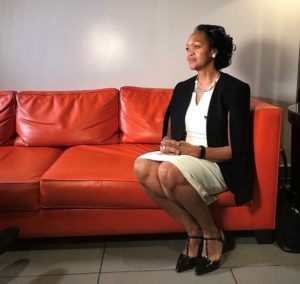By Mercy Abang
Lagos, NIGERIA – Prosper Africa, a new U.S. government inter-agency initiative, aims to double U.S. trade and investment with the continent over the next five years. What will this look like for Nigeria, Africa’s largest economy, and how will Nigerian farms, firms and investors fare?
To begin to answer those questions, key players in the Nigerian private sector met for a dialogue called “Making Prosper Africa Work for Nigeria” on July 11. The event was co-hosted by the Corporate Council on Africa, the Nigerian-American Chamber of Commerce, Dalberg and Creative Associates International.
The significance of Nigeria to the success of Prosper Africa cannot be overlooked as Florizelle Liser, President and CEO of the Corporate Council on Africa emphasized.
“We are very supportive of the Africa Continental Trade Area, and Nigeria can be a gateway because you are so large; you are the aggregator,” she told the participants.
Liser also advocated the need for more U.S.-Africa private sector connectivity and that the priority was to promote greater trade and investment in Africa.
Answering important questions about Prosper Africa in Nigeria
Top of the agenda for Prosper Africa is for the U.S. Chamber of Commerce and the chambers of commerce of African countries to work together with the private sector to grow African business.

But which partners the U.S. will focus on is a critical question. And for Nigeria in particular, what does a successful U.S. strategy look like to expand trade and investments in several key areas from agri-business and small and medium enterprises to an economy beyond oil?
For the U.S. government, “it is about getting the right alignment of its programs so that investment can be facilitated,” said Earl Gast, Executive Vice President of Creative Associates International, during the roundtable.
Gast added that in moving away from traditional aid programs toward Prosper Africa, it is important that “there be tools in place to help promote U.S. investments and U.S. exports to help Nigeria and Nigeria’s development process.”
Beyond Prosper Africa’s benefits to the U.S. and Nigeria, the Lagos roundtable immersed experts from the Nigerian private sector in the technical details, seeking to provide a better understanding of the global opportunities Prosper Africa offers them.
The roundtable triggered conversations and alliances that will help Nigerian stakeholders gain a more nuanced understanding around funding, predictable business regulations, and key partnerships that will help strengthen local institutions, as well as U.S. companies working across Africa.
“We as the U.S. government will focus on getting the word out to U.S. companies on Africa and will help facilitate their engagements here,” said Brent Omdahl, Commercial Counselor with the U.S. Mission to Nigeria. “The interest by American companies is high in Nigeria, but the understanding level is low, so that’s what needs to change.”
New development for African trade

For the year 2019 alone, the U.S. government has introduced two major new initiatives to boost trade and investment on the African continent.
Prosper Africa, launched in December 2018 and rolled out on June 19, 2019 in Mozambique, aims to achieve its goal of doubling U.S. trade and investment with Africa in five years mainly by mitigating risk and improving the business environment in support of private sector expansion.
“The U.S. government has sustained its commitment to the African continent, by continuing to serve as the world’s largest donor of foreign aid, providing over $9 billion a year to support Sub-Saharan Africa,” said U.S. Deputy Secretary of State Karen Dunn Kelley at the Corporate Council on Africa’s U.S.-Africa Business Summit in Maputo, Mozambique. “When it comes to trade, however, there is room for great progress and opportunity.”
The second initiative is the $60 billion U.S. International Development Finance Corporation, which will more than double the amount of money available for U.S. investment in low and middle-income countries. Many of the countries supported by this new agency will be in Africa.